Happiness is a paradoxical goal. We all want to be happy, yet we often fail spectacularly at predicting what will make us happy.
We pursue goals like wealth, fitness, status and mastery only to find that achieving them doesn’t really change our lives very much. In contrast, we often deliberately make ourselves miserable: we worry about things we cannot control, hold grudges against people we cannot influence, and spend time on activities we don’t truly value.
I don’t claim to have discovered the recipe for perpetual bliss, but from my decidedly unenlightened perspective, I have found a few maxims that have made my life better that I’d like to share:
1. Embrace the seasons of your life.
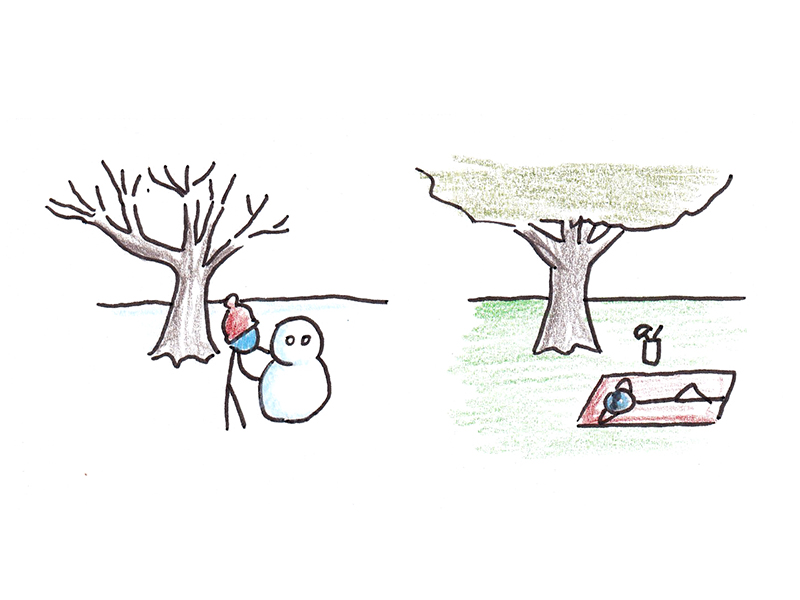
Unhappiness is wishing you could be at the beach when it is snowing. You can’t control the weather, and daydreaming about a possibility that isn’t practical doesn’t make you better off.
A major philosophical tension in the pursuit of happiness is the conflict between accepting things as they are and striving to change them for the better. There is a third way: accepting the broadly unchangeable factors of your life while seeking to make the most of the things under your control.
Weather is an apt analogy for this. Every phase of life is a season that affords some possibilities and constrains others. Happiness is largely about maximizing the opportunities afforded by your current stage of life—and not despairing of the constraints.
For instance, when I was in university, I sought to maximize my experience: I went on exchange, joined student council, went to parties and tried out new activities. Now as a father of two, I’m content going to farmer’s markets and making sand castles at the beach.
2. Striving is good, but achieving is overrated.
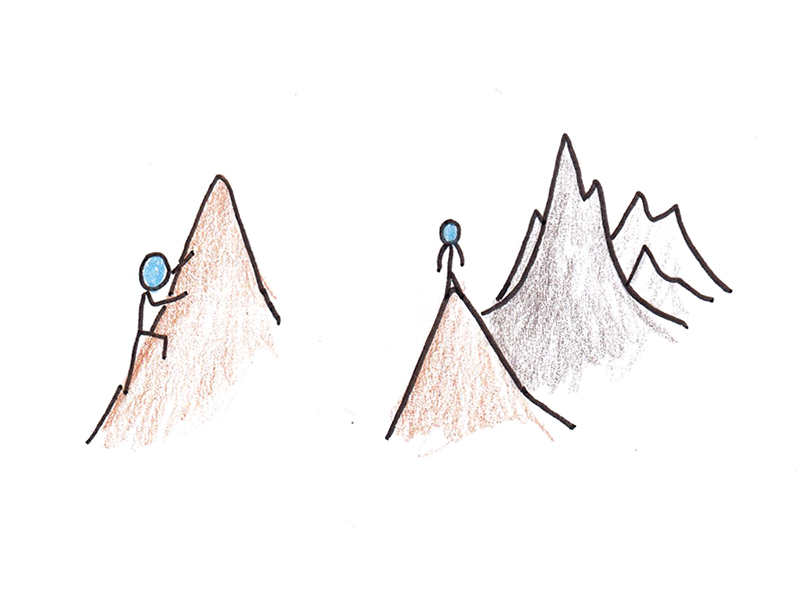
Most of the time, achieving goals won’t make you any happier than you are right now.1
While some believe this fact about human nature implies striving is wasteful, I think it’s more accurate to say that while achieving goals is overrated, striving toward them is underrated.
Goals, projects, interests and pursuits absorb our attention in positive directions. They take us away from abstract worrying or depressive navel-gazing. Activity is energizing, which is one reason why a crucial part of treatment for depression is simply getting patients to do more things.
The secret of the pursuit of happiness is that happiness is in the pursuit.
3. Meet other people more than halfway.
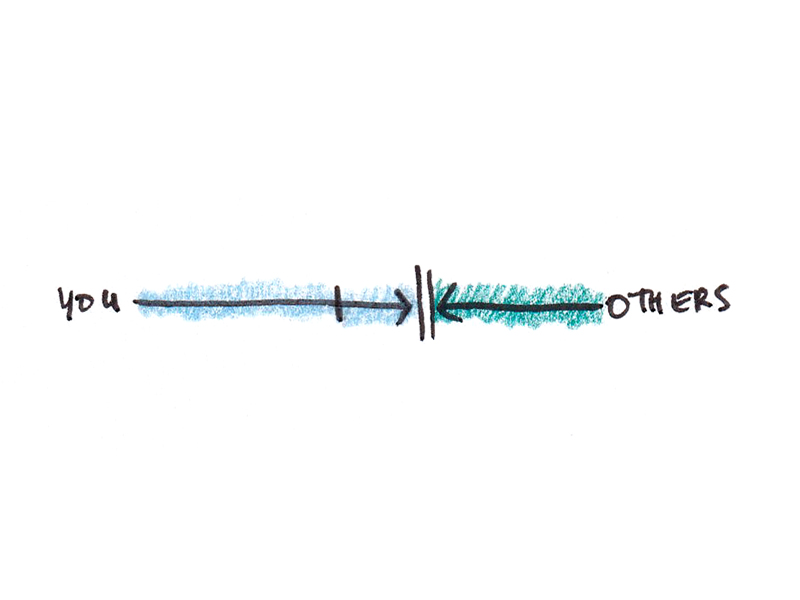
We are a chronically self-obsessed species. Nearly all of our thoughts are directed towards ourselves. Even our outwardly directed thoughts are often self-centered: We care about our relationship with other people. Absent our interest in them, we direct vanishingly little mental capacity towards others’ viewpoints.
This observation may seem cynical, but I’d argue it’s quite useful: if you believe everyone is self-obsessed, it implies you shouldn’t overweigh how much time others spend thinking about you.
Relationships can break down because our slights to others are often invisible to us. In contrast, we feel the sting of every missed birthday wish, dropped calendar appointment or subtle criticism.
If you accept this asymmetry, it makes sense to strive to meet others more than halfway. Be the one who reaches out to find time to meet. Be the one who congratulates and remembers important events. Be the one who is thoughtful and kind. When you aim to meet people more than halfway, you’re much more likely to connect in the middle.
4. Apologize often.
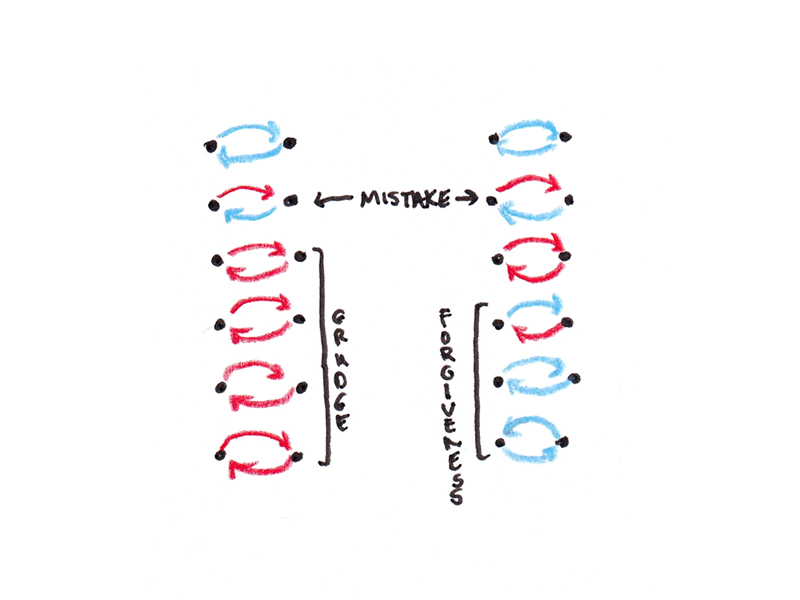
Everyone knows friends or family members who won’t speak to one another because of long-held grudges. While obligatory distance sometimes makes sense—especially in cases of abuse—many of these grudges began with some superficial slight that worsened over time.
Just as meeting people more than halfway can overcompensate for our built-in ego-centrism, often, apologizing can smooth over disputes and prevent feuds from festering.
This isn’t just an emotional plea, either. Game theory bears this idea out. The Prisoner’s Dilemma is a classic game: you can rat out your partner to get the best deal for yourself, or cooperate and endure a mild punishment. If you only play once, the best strategy is to be selfish.
However, relationships are, by definition, a series of repeated interactions. In those scenarios, the best strategy is called tit-for-tat with forgiveness. This approach isn’t as soft as being a total pushover, but it also prevents continued cycles of reprisal simply because one person accidentally made a mistake.
5. Stop listening to people who are paid to make you angry.
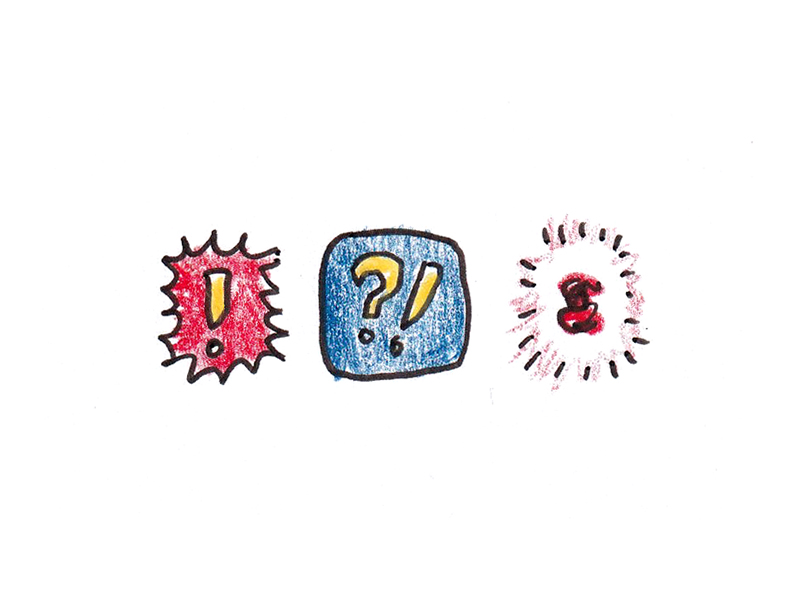
Our brains weren’t designed for social media. They developed in an era when dangers and norm violations needed to be quickly spotted and dealt with. This makes threatening, rage-enabling and anxiety-inducing news so particularly appealing.
Except we now live in a world with billions of people. Statistically speaking, something terrifying, enraging and panic-inducing is happening to someone at every moment. In past eras, we were mostly able to ignore such things because limits in reportage and norms of journalistic practice prevented events that happened far away or were of limited newsworthiness from entering our field of consciousness.
However, algorithms designed to maximize engagement now funnel every enraging triviality to the front of your attentional space.
We need to curate our online consumption so that we’re not unwittingly making ourselves miserable over the statistical certainty that someone, somewhere, is doing something awful.
6. Look for small novelties.
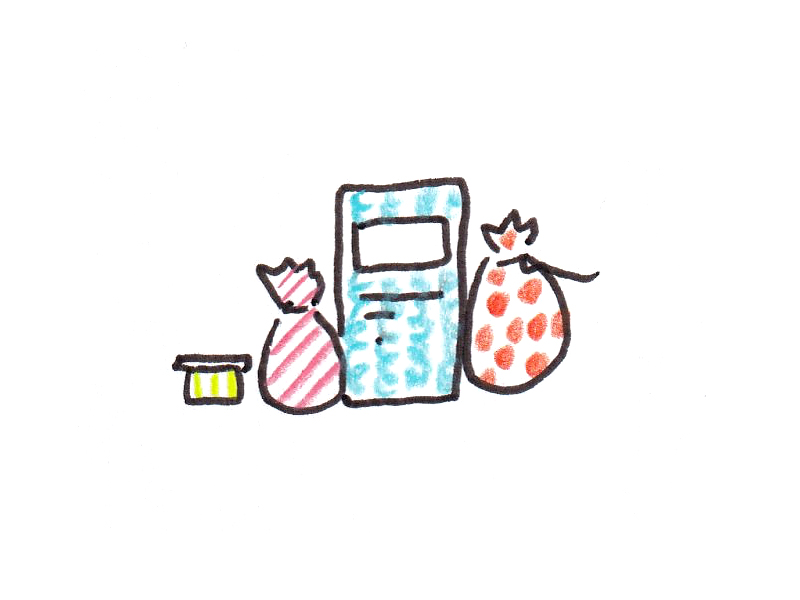
When I was in university, a guy named Nick lived on the same floor in my dormitory. Every week, a shuttle would pick up the students to go to a nearby supermarket (it was a fair walk, few of us had cars, and this was Winnipeg, where winters can reach -40 degrees Celsius).
Nick had a habit of buying one new food item every time he shopped, usually from the international section. Buying a bag of Mexican candy or an odd-looking fruit you had never heard of before might seem trivial. It certainly does not require great effort, cost or ability, but he got to experience something new each week.
I didn’t stick with Nick’s habit consistently, but I find the same small bit of joy every time I try a cuisine I’ve never eaten, explore an unfamiliar park or stroll down a street I’ve never walked down before.
We spend years earnestly striving toward things we think will bring us happiness, but the truth is that much of happiness lies in little joys and moments that we can easily overlook if we’re not paying attention.
7. Remember everything is a choice.
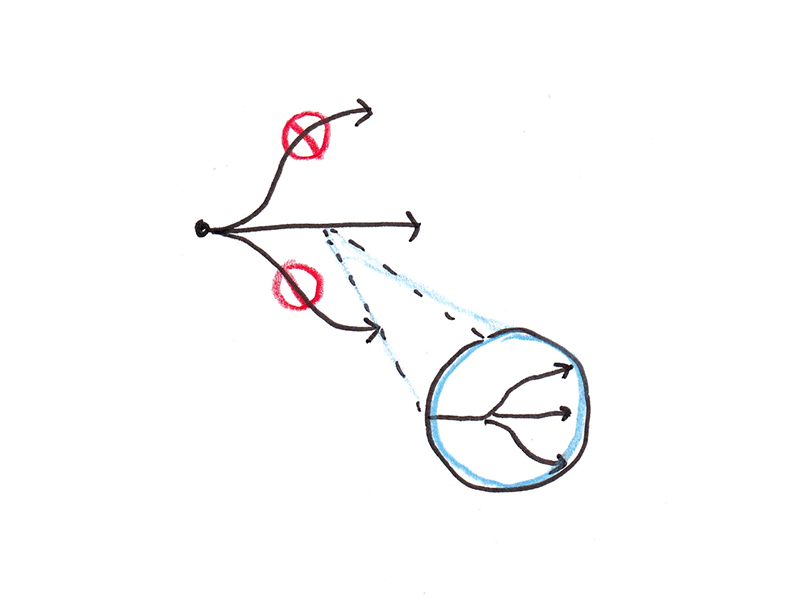
Within every constraint is a choice. Every forced option contains a range of possibilities. Behind everything that must be done is a decision about how to think about it.2
In 2018, I went on a ten-day meditation retreat. The biggest lesson I took from that experience was that even within the most confining situations—such as the necessity of sitting in a rigid position for hours while only thinking about your breath—there is a world of choice available.
Psychologists have long known that our locus of control for an event greatly impacts our perception of it. Awful things feel much worse when they’re uncontrollable. In contrast, believing that we have control makes even horrible events bearable.
There will always be limits on what we can choose, but there will also always be space within those limits to make a choice. Reminding ourselves of that is often enough to regain the feeling of control, and reduce the feeling of helplessness in facing the things we cannot.
Those are my rules for happiness, what are yours? What things do you try to live by that make you happier? Share your thoughts in the comments.
Footnotes
- The main exception to this is when you are chronically deprived of some essential need that achieving a goal would fix. Getting out of poverty improves your happiness, but getting fantastically rich doesn’t matter nearly as much.
- What things are choices is separate from the metaphysical idea of free will. I tend to disbelieve the idea that human agency is somehow disconnected from the causal flow of the universe. The boundary between choice and non-choice is not metaphysical; it’s psychological. Choice occurs when the causal flow of an event goes through our conscious deliberation, or the event would be assented to were it to have been deliberate. This is true, even if the unseen processes that guide conscious thinking are mechanistic.


 I'm a Wall Street Journal bestselling author, podcast host, computer programmer and an avid reader. Since 2006, I've published weekly essays on this website to help people like you learn and think better. My work has been featured in The New York Times, BBC, TEDx, Pocket, Business Insider and more. I don't promise I have all the answers, just a place to start.
I'm a Wall Street Journal bestselling author, podcast host, computer programmer and an avid reader. Since 2006, I've published weekly essays on this website to help people like you learn and think better. My work has been featured in The New York Times, BBC, TEDx, Pocket, Business Insider and more. I don't promise I have all the answers, just a place to start.